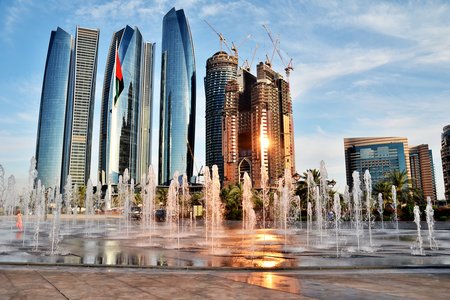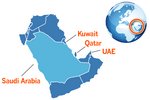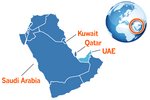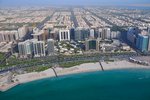Overview of the Political System of United Arab Emirates
The United Arab Emirates is made up of seven emirates: Abu
Dhabi, Dubai, Sharjah, Ajman, Umm al-Qaiwain, Ra's al-
Khaimah and Fujairah. The United Arab Emirates gained its
independence from the UK on December 2, 1971. Its
constitution was established on independence, and was made
permanent in 1996. The form of government can be referred to
as a federal presidential elected monarchy, as the president
is elected from among the absolute monarchs who rule each of
the seven emirates.
Executive Branch:
The chief of state of the United Arab Emirates is President
Sheikh Mohamed bin Zayed (since May 2022), who is the ruler
of Abu Dhabi. The head of government is the Vice President
and Prime Minister, Muhammad bin Rashid al-Maktum (ruler of
Dubai), the Deputy Prime Ministers are
Saif bin Zayid Al-Nuhayyan (since 2009) and Maktoum bin Mohammed Al-Maktoum (since Sep 2021).
The President appoints a Cabinet, or Council of Ministers.
There is also a Federal Supreme Council (FSC) composed of
the seven rulers of each of the seven emirates, which meets
four times per year. The FSC is the highest constitutional
body in the United Arab Emirates, and it establishes general
policies and sanctions federal legislation. The FSC also
elects the President (and Vice President) from amongst their
number, meeting at five-year intervals to reaffirm the
existing President or elect a new one. (There is no limit
on terms.) However, the emirs of
Abu Dhabi and Dubai have effective veto power in elections
for the role of President. The last presidential election
was held in 2009.
The
prime minister and deputy prime minister are appointed by
the president.
Legislative Branch:
The Federal National Council (FNC) has 40 seats; the rulers
of the seven Emirates appoint 20 members, and 20 are elected
to four-year terms. The first elections were held in December
2006, and most recent ones in September 2011. In the most
recent election, there were 129,274 eligible voters.
The elections are not based on a party system, but on
individual candidates. (There are no political parties in
the UAE, because political parties are forbidden.)
In the last election in October 2019, 13 men and seven women were elected.
The next elections will be held in October 2023.
Judicial Branch:
The legal system of the UAE is based on a dual system of
Sharia
and civil courts.
The judiciary's independence is guaranteed by the
Constitution of the UAE, and it includes the Supreme Court
and the Courts of First Instance. Judges are appointed by the
president.
Other:
Each emirate has its own local government, and municipal
governments. The constitution established the distribution
of authority for each level of government.
For more information, see:








